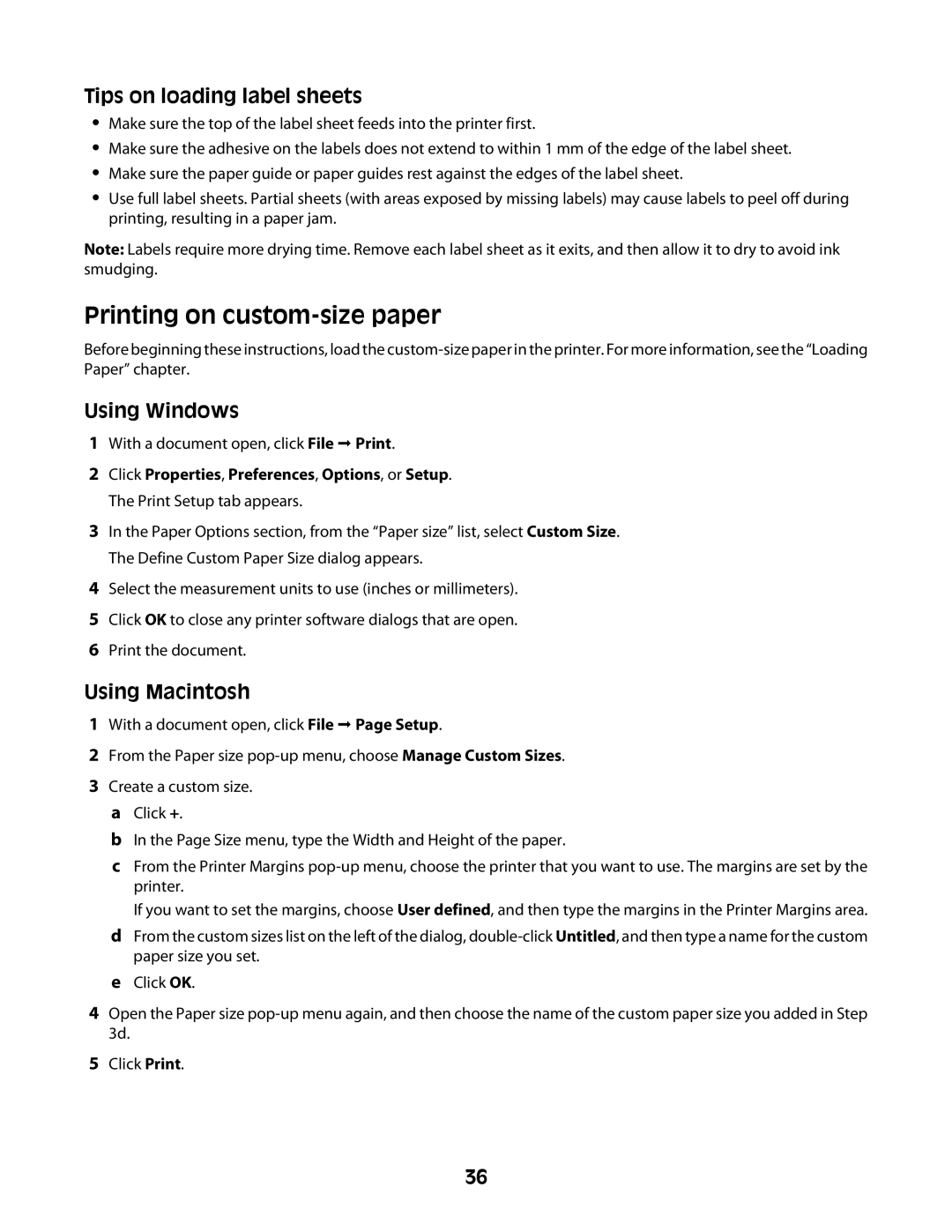Tips on loading label sheets
•Make sure the top of the label sheet feeds into the printer first.
•Make sure the adhesive on the labels does not extend to within 1 mm of the edge of the label sheet.
•Make sure the paper guide or paper guides rest against the edges of the label sheet.
•Use full label sheets. Partial sheets (with areas exposed by missing labels) may cause labels to peel off during printing, resulting in a paper jam.
Note: Labels require more drying time. Remove each label sheet as it exits, and then allow it to dry to avoid ink smudging.
Printing on custom-size paper
Before beginning these instructions, load the
Using Windows
1With a document open, click File Print.
2Click Properties, Preferences, Options, or Setup. The Print Setup tab appears.
3In the Paper Options section, from the “Paper size” list, select Custom Size. The Define Custom Paper Size dialog appears.
4Select the measurement units to use (inches or millimeters).
5Click OK to close any printer software dialogs that are open.
6Print the document.
Using Macintosh
1With a document open, click File Page Setup.
2From the Paper size
3Create a custom size. a Click +.
b In the Page Size menu, type the Width and Height of the paper.
cFrom the Printer Margins
If you want to set the margins, choose User defined, and then type the margins in the Printer Margins area.
dFrom the custom sizes list on the left of the dialog,
eClick OK.
4Open the Paper size
5Click Print.
36
